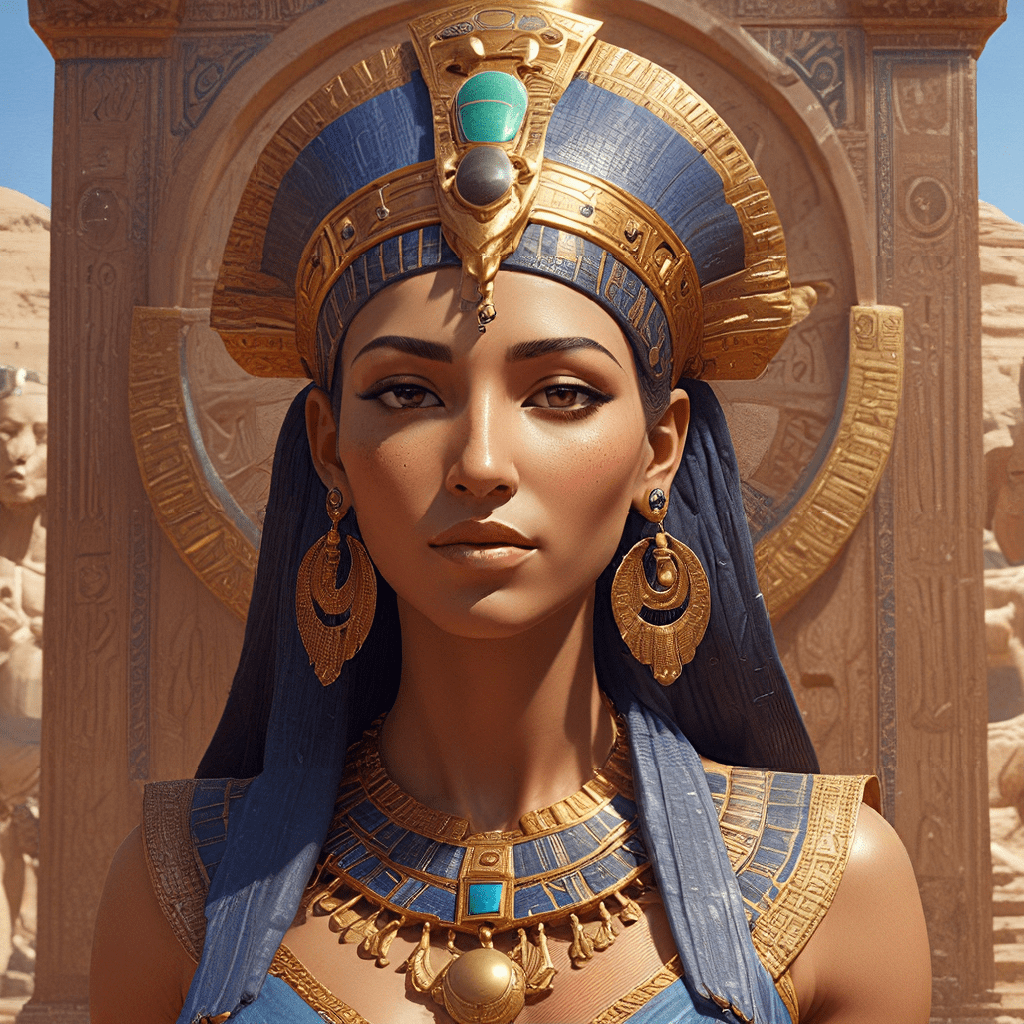Hathor: The Goddess of the Family
In the rich tapestry of Egyptian mythology, Hathor stands as a prominent figure, embodying a dazzling array of qualities. She is revered as the goddess of love, beauty, music, joy, and motherhood. However, her role extends beyond these individual aspects, encompassing a profound connection to the very essence of the family. Hathor is not only a goddess but a symbol of family unity, nurturing, and prosperity.
Hathor’s Maternal Aspects: Nurturing and Protection
Hathor is often depicted as a motherly figure, radiating warmth and care. This association stems from her connection to fertility and childbirth, making her a central figure in the lives of Egyptian women. The cow, a symbol of nourishment and maternal devotion, is frequently linked to Hathor, further solidifying her role as a source of sustenance and protection. The cow’s milk, essential for nourishment, provided sustenance for infants and families, mirroring Hathor’s nurturing nature.
Just as a mother safeguards her children, Hathor extends her protective embrace to families. She watches over children, ensuring their well-being and guiding them through life’s journey. Hathor is believed to bestow blessings of health, happiness, and longevity upon families, fostering a sense of security and well-being. This aspect of Hathor’s character is reflected in the numerous amulets and statues depicting her as a motherly figure, often holding a child.
Hathor as the Wife and Mother of Horus: A Family Unit
Hathor’s relationship with Horus, the god of kingship, further underscores her crucial role in family dynamics. She is depicted as both his wife and mother, symbolizing the intricate bonds within a family unit. This relationship highlights the importance of lineage and the continuity of the family line, concepts deeply ingrained in Egyptian belief systems.
Hathor’s role as Horus’s mother reflects her nurturing and protective nature, while her position as his wife speaks to the harmonious and supportive role she plays in his life, and by extension, the well-being of the kingdom. This familial bond reinforces Hathor’s connection to family unity and the importance of maintaining strong ties within the family structure.
Hathor and the Home: The Sacred Space of Family
The home, a sacred space for family gatherings, is intimately linked to Hathor. She embodies the warmth, comfort, and security that are essential components of a loving home. Her presence is often invoked within homes through statues, amulets, and other forms of devotion.
Hathor’s association with music and joy contributes to the vibrant and joyful atmosphere of a home. Her presence brings a sense of harmony and peace, making the home a sanctuary for family members. The home becomes a sacred space where Hathor’s blessings are sought and cherished, solidifying her role as the protector and guardian of the family unit.
Hathor’s Influence on Marriage and Reproduction: Blessing and Abundance
Hathor’s influence extends to the realm of marriage and reproduction, symbolizing the blessings of fruitful unions and abundant offspring. She is invoked in marriage ceremonies, where her presence is believed to guarantee the success and prosperity of the couple’s union.
Hathor’s connection to fertility and abundance is reflected in the symbols associated with her. The sistrum, a musical instrument often used in ceremonies, represents the rhythmic cycles of life and the promise of new beginnings. The cow, as mentioned earlier, symbolizes nourishment and the abundance of resources needed to sustain a family. Hathor’s presence ensures the growth and prosperity of families, reminding Egyptians that she is a goddess who watches over the continuity of life and the flourishing of future generations.




